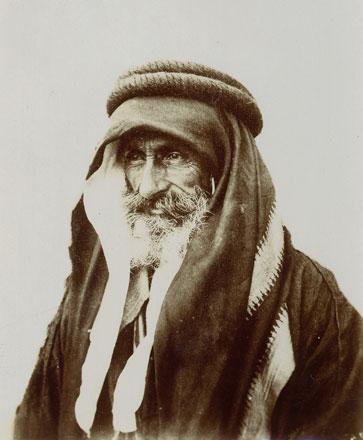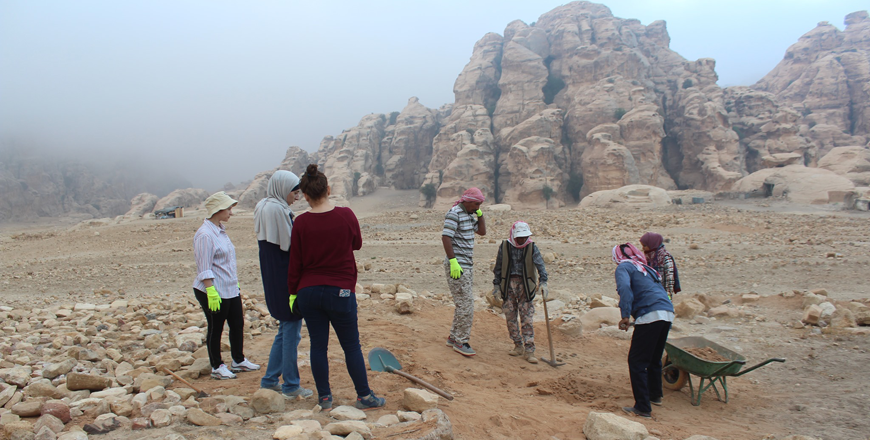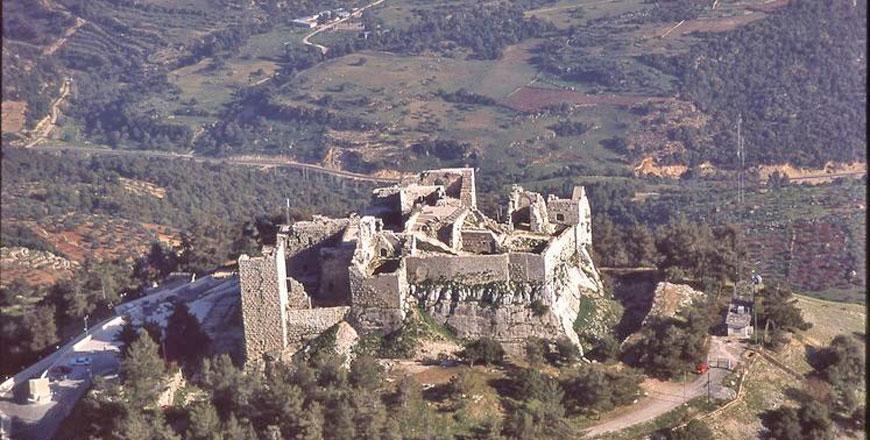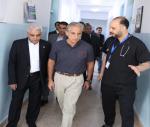You are here
Palestine Exploration Fund moves to show Levantine heritage, culture off in London
By Saeb Rawashdeh - May 22,2019 - Last updated at May 22,2019

A portrait of Sheikh Assuna, a dignitary of the Kerak region in 1865 (Photo courtesy of the Palestine Exploration Fund)
AMMAN — Founded as an independent, non-political and non-sectarian society in 1865, the Palestine Exploration Fund (PEF) represents the oldest society in the world for the study of the Levant.
Back then, the geographical region known as “Palestine” was an integral part of the Ottoman Empire, said Chief Executive and Curator of the PEF Felicity Cobbing.
In an interview with The Jordan Times, she added that the Ottoman’s Palestine region included historical Palestine, Jordan, southern Syria, Lebanon, the Sinai Peninsula and the island of Cyprus.
“Its goal was — and remains — to study the country, its people and its natural, ancient and cultural heritage,” Cobbing explained.
In the 19th and early 20th centuries the PEF conducted projects, which transformed the world’s knowledge of the whole region, including Jordan, she said.
The PEF’s collections of archives, photos and other objects from various projects, is a valuable resource for scholars, the curator noted.
Outlining ongoing projects in Jordan, Cobbing said: “Recently in Jordan we have funded the Islamic Baydah Project, the Umm at Tawabin excavations, the Hajj Roads Project, the Eastern Badia Wisad Pools Archaeological Project and the Khirbet Ghozlan Excavation Project.”
Anyone of any nationality can apply for these grants, as long as the project meets our requirements, she underscored; “The only qualification [for applying] is an interest in the archaeology and cultural heritage of the region.”
The current political situation in the Middle East affects the work of scholars affiliated with the PEF, Cobbing exclaimed.
Palestinian institutions and universities face significant difficulties in running archaeological and cultural heritage courses and exhibitions, as well as recruiting experts from overseas, according to the chief executive.
Consequently, many ancient monuments have suffered throughout the region because of neglect, vandalism and illicit excavation, she highlighted.
“Clearly, a more peaceful, cooperative atmosphere would help the authorities collectively find solutions to these issues, share resources, information and expertise, and thereby improve the situation for scholarship and cultural heritage overall,” Cobbing stressed.
The PEF adheres to international protocols regarding the protection of cultural heritage and constantly monitors its activities so as not to support or endorse projects operating in occupied territories or leading to wrongful appropriation of cultural heritage, she asserted.
Recently, the PEF moved to new headquarters.
“Our new building in Greenwich, London, provides more and better space for our collections and specialist library. Now we can welcome many more scholars and we can look forward to developing collaborative projects with other institutions both in the UK and internationally,” she stated.
The goal of the PEF in the future is conservation, cataloguing, researching and introducing the public to the different collections that will feature Jordanian material as well, the curator said.
“We actively support field and archival research in the region. Our goal is to be the venue in London where the fascinating heritage of the southern Levant and its wonderful people can be explored openly and without prejudice by all who are interested,” Cobbing concluded.
Related Articles
AMMAN — A series of restoration projects at the Amman Citadel began in 1995, noted Professor Ignacio Arce from German-Jordanian University a
AMMAN — Extensive archaeological sites, including the world-famous mosaic in Madaba, have long made central Jordan a source of fascination a
AMMAN — The American Centre of Oriental Research (ACOR) has started digitalising images and photo collections with the aim of preserving the



















